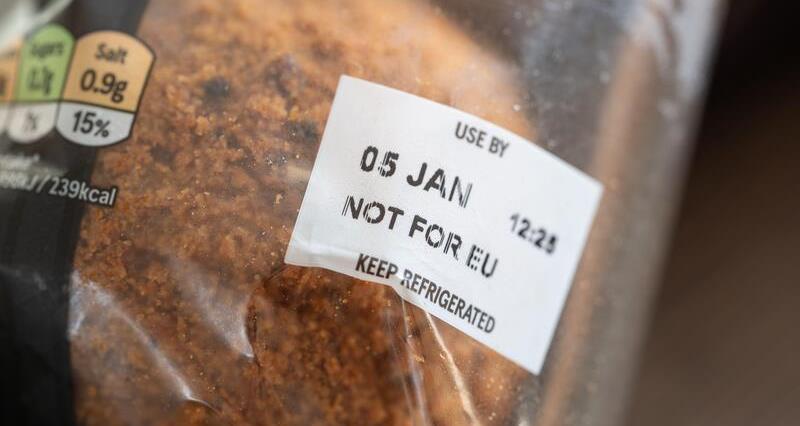
The government's ‘not for EU’ labelling scheme could rack up massive bills for businesses throughout the country, a major Scottish dairy has warned.
The managing director of Graham’s Family Dairy, Robert Graham, said that the proposed transition would cost the firm £300,000 before even considering the cost of labour time, complexity and additional running costs.
The move would lead to a change in packaging for over 300 of the dairy firm’s lines, equating to millions of units per week, he said.
The plans were brought in as part of concessions secured with the EU under the Windsor Framework Agreement, which sets out post-Brexit trade arrangements for Northern Ireland.
The labels are intended to guarantee that food sold in the province that have not undergone EU border checks do not pass into the Republic of Ireland, which is part of the EU’s single market.
The UK government has committed to introduce ‘Not for EU’ labelling across the whole of the UK, which must be displayed on a range of agri-food products.
This is irrespective of if they have been produced in Great Britain or imported from abroad.
According to Dairy UK, the trade body for the dairy sector, the financial cost per business of changing labelling alone has been quoted as up to £500,000, and up to £2 million per business when factoring in all other costs.
Speaking to the BBC's Farming Today programme, Robert Graham said this transition would cost UK food and drink firms hundreds of thousands of pounds.
"For us, this is going to change the way we do things for millions of units every week, which is clearly a huge cost for a family firm," he said.
"The proposed requirement means that we would have to have different packaging between UK and export lines, leading to higher costs across stock, production, branding and operations.
“The new requirements would add unjustified complexity while there is already an overwhelming feeling across the industry that it would make no difference to export trade to Northern Ireland.
"The food industry understands the complexities of politics but we can’t help but feel this legislation will do nothing for the industry but confuse consumers, increase complexity and heighten costs by millions for the sector.”
Mr Graham has written and met with the Office of the Secretary of State for Scotland on the matter, with the hope that plans for the new requirements are reconsidered.
A recent poll by Best for Britain revealed that almost one in five (18%) have said they are less likely to buy products labelled 'not for EU'.
